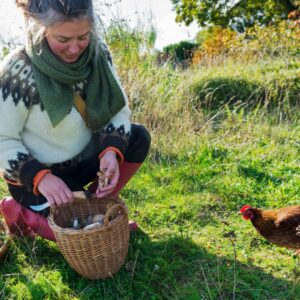The future of senior housing
MarketWatchs’ Joseph Coughlin writes: Opinion: This is the future of senior housing – Older consumers — and their adult children — now have more education and higher technological expectations.
“Today’s senior-housing industry stands at a pivotal crossroads. Long viewed as a last resort motivated by necessity rather than desire, there is an unprecedented opportunity to fundamentally reposition the industry as an aspirational lifestyle choice for aging baby boomers and Generation X consumers, demographics that have consistently redefined each stage of life they enter.
This transformation is not optional — it is essential.
Although the sheer number of older adults and the shifting old-age dependency ratio suggest a steady and significant demand for senior housing, these data provide the industry and investors with false confidence, leading to a complacent belief that, as the adage goes, “if you build it, they will come.”
Demographics don’t tell the whole story
The numbers are undeniable. According to the U.S. Census Bureau, by 2030, every baby boomer will have crossed the age-65 mark, swelling this cohort to over 73 million. Even more striking, by 2040, the population age 80 and older — traditionally senior housing’s “sweet spot” — will nearly double to almost 29 million.
Demography may be destiny, but even though numbers may not lie, they can hide underlying dynamics that today’s senior-housing investors, owners and operators might overlook.
The current industry landscape faces evolving trends and significant challenges that will weaken the impact of seemingly predictable demographic tailwinds. To successfully navigate this changing marketplace, senior housing must shift from being seen solely as a care provider to an aspiration in the public’s mind. It will need to rethink its experience and service delivery, redesign its physical infrastructure, and place greater emphasis on partnering with trusted brands, rather than claiming to be a solo provider of quality services.
A longevity-economy wealth paradox
America’s older-consumer market, known as the longevity economy, is valued at an astonishing $8.3 trillion annually. However, the distribution of this wealth is strikingly unequal: Federal Reserve data show that approximately 80% of wealth among older households is held by only 20% of them. For instance, a 2024 Alliance for Lifetime Income study reports that 53% of baby boomers who will turn 65 between 2024 and 2030 have less than $250,000 in retirement assets.
This bifurcation offers investors two distinct opportunities: a lucrative but limited luxury segment and a much broader, financially constrained middle market. The implications are clear: Demographics alone will not determine market success; understanding nuanced consumer segments will.
Furthermore, the senior-housing industry’s capacity to develop and provide a service experience that is both desired and affordable for a mass middle market is crucial to fully realizing the market potential of the aging population.
Older consumers with more education and tech expectations
Not only will there be many more older adults than in decades past, but tomorrow’s potential senior-housing consumer is more educated and tech-savvy than previous generations.
According to Pew Research, 45% of Baby Boomers have at least some college education, compared to 28% of the Silent Generation. According to AARP, consumers age 50 and older now own an average of seven tech devices they use daily. Older adults have overwhelmingly adopted smartphones (91%), smart TVs (78%), laptops (72%) and tablets (62%). Far from being digital novices, these statistics reveal that older adults have integrated technology across all aspects of their lives — from communication and entertainment to productivity and health monitoring.
Tech-savvy, educated older consumers will demand a comprehensive digital infrastructure that supports everything from telehealth integration to personalized service platforms and smart living environments.
Marketing must evolve to engage these consumers through immersive digital channels. And physical spaces require redesign to accommodate ubiquitous virtual connections. Consider dedicated private telehealth suites with optimized audiovisual and diagnostic equipment, as well as communal virtual interaction hubs equipped with interactive screens and augmented-reality stations — enabling seamless social connections and remote engagement with friends and family, and even shared virtual experiences from walking the streets of Paris to visiting an aquarium or museum.
Providers who view technology as core infrastructure rather than an amenity will attract this new consumer and satisfy their tech-expecting adult children.
Don’t forget the adult children
The decision to buy senior housing is experiencing a significant shift: Adult children have become as influential as their aging parents. Approximately 53 million Americans — mainly millennial and Gen X daughters — act as caregivers and significantly influence these decisions. Research from MIT AgeLab indicates that these caregivers are deeply engaged in nearly every aspect of their parent’s lives, serving as confidants, caregivers and consumer advocates.
Adult children bring new expectations; they expect personalized service, technology-enabled amenities and access to branded experiences. Therefore, senior-housing providers must adapt their marketing, amenities and communication strategies to effectively engage both audiences — catering to their older residents and their digitally savvy, well-educated adult children.
Virtual aging in place
Perhaps the most disruptive senior-living trend is the widespread desire to remain at home as people grow older. An AARP survey reveals that 75% of adults age 50 and older prefer aging in place — now more feasible due to tech-driven solutions such as internet-enabled medication management systems like smart pill dispensers, medication tracking and real-time reminders, as well as AI-enabled fall-detection systems and remote health monitoring all designed to lead to better health management.
The “smart home” market in the U.S. alone is projected to exceed $87 billion over the next decade. Internet-connected devices and on-demand services — from home deliveries to telemedicine — provide the foundation for what’s known as “virtual assisted living,” empowering older adults to remain at home longer and easing caregiver responsibilities.
Although these innovations might not allow older adults to age in their homes permanently, they will significantly extend the time they can comfortably and safely remain in their homes.
As a result, individuals moving into senior housing later will likely be older, have developed additional or more intense health conditions and disabilities, and require higher levels of care — potentially increasing the complexity and costs associated with delivering their care compared with previous generations.
Multicultural market transition
The aging of the population is just one demographic reality shaping the future of senior housing. The Population Reference Bureau reports that between 2022 and 2050, the proportion of non-Hispanic white older adults is projected to decline from 75% to 60%, while Hispanic, Asian and multiracial populations will significantly increase. These changes will fundamentally alter senior-housing consumer demand.
Growing market diversity will create demand for culturally responsive living environments. Future senior communities will need to incorporate multilingual staff, culturally diverse dining options and design elements that reflect various cultural preferences. The market will likely see the emergence of specialized communities catering to specific cultural groups, along with greater integration of senior-housing options within established ethnic neighborhoods.
Senior housing’s future
The senior-housing industry stands at a transformative inflection point where demographics alone will not guarantee success. To thrive in tomorrow’s marketplace, investors and operators must recognize they’re no longer simply providing care facilities but delivering lifestyle experiences that meet the expectations of a more diverse, tech-savvy older population and their adult children.
The most successful players will be those who fundamentally reimagine their value proposition — creating culturally responsive, technology-enabled communities that feel less institutional and more aspirational, developing innovative financial models to serve the substantial middle market, and forging strategic partnerships with trusted consumer brands that resonate across generations.
Those who merely expand capacity without addressing these evolving consumer expectations risk finding themselves with properties that, while perfectly aligned with yesterday’s market, fail to capture the imagination — and investment — of tomorrow’s evolving and more demanding senior-housing consumer.”
To continue reading the rest of the article, please click here.
To contact Shire Retirement Properties (Pty) Ltd, please click here.























































